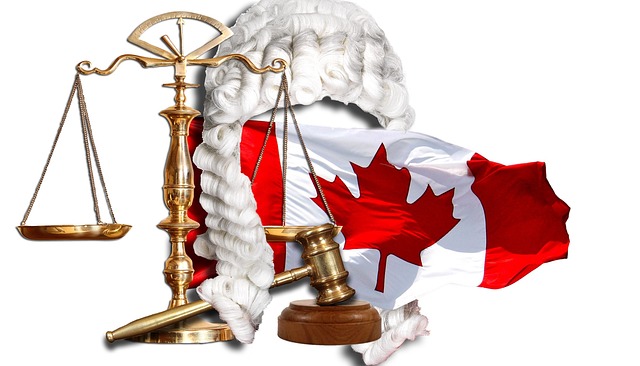Whistleblower protection laws are essential for encouraging ethical behavior within organizations, safeguarding employees who expose illegal activities from retaliation. Understanding these laws is vital for both parties, as it clarifies whistleblowers' rights and aids businesses in developing white-collar defense strategies. The high cost of litigating breach of contract associated with whistleblower disputes can incentivize organizations to comply with regulations, fostering transparency. In pursuit of a whistleblower protection lawsuit, demonstrating whistleblower status and proving adverse employment actions due to whistleblowing are key. High legal costs, involving extensive document reviews and expert fees, make these cases complex and expensive, reaching millions of dollars. Strategic approaches, like early case assessment and settlement negotiations, can mitigate expenses and ensure efficient resource allocation for both parties.
Whistleblower protection lawsuits are a critical aspect of ensuring transparency and accountability within organizations. These legal actions empower individuals who expose corporate wrongdoings, providing a safeguard against potential retaliation. Understanding the rationale behind these laws is essential, as they foster a culture of integrity. This article explores key elements of successful whistleblower cases, delving into the financial implications, particularly the cost of litigating breach of contract, and offers strategies to mitigate legal expenses for those brave enough to speak up.
- Understanding Whistleblower Protection Laws and Their Rationale
- Key Elements of a Successful Whistleblower Protection Lawsuit
- The Financial Burden: Cost of Litigating Breach of Contract in These Cases
- Strategies for Mitigating Legal Expenses in Whistleblower Protection Lawsuits
Understanding Whistleblower Protection Laws and Their Rationale

Whistleblower protection laws are designed to safeguard individuals who expose illegal or unethical activities within their organizations from potential retaliation. These laws recognize that employees who speak up against corruption, fraud, or public health and safety violations play a crucial role in upholding societal norms and ensuring accountability. By providing legal protections, including shielding them from dismissal, harassment, or other adverse actions, whistleblower protection laws aim to foster an environment where employees feel empowered to come forward with valuable insights.
Understanding these laws is essential for both whistleblowers and businesses alike. For whistleblowers, it clarifies their rights and offers a legal framework to navigate potential conflicts. Businesses, on the other hand, must be aware of their obligations to uphold these protections as part of comprehensive white-collar defense strategies. Moreover, recognizing the cost of litigating breach of contract associated with whistleblower disputes can help organizations proactively avoid indictment by adhering to applicable laws and regulations. This proactive approach not only safeguards individual careers but also contributes to a fairer and more transparent corporate culture, ultimately benefiting society at large.
Key Elements of a Successful Whistleblower Protection Lawsuit

When bringing a whistleblower protection lawsuit, several key elements are crucial for ensuring success. Firstly, establishing that an individual is a whistleblower is essential. This typically involves demonstrating that they revealed information about illegal activities within their respective business or organisation. The act of blowing the whistle should have been done in good faith, with genuine concerns about unethical practices or violations of law.
Another critical aspect is proving that the plaintiff faced adverse employment actions as a direct result of their whistleblowing activities. This could include termination, demotion, or other forms of retaliation. It’s important to document these actions and show their connection to the whistleblower act. Moreover, quantifying damages, such as the cost of litigating a breach of contract, can significantly strengthen the case by showcasing the financial impact of the retaliation on the plaintiff. In addition, engaging experienced legal counsel specialising in white-collar defense and who are well-versed in navigating the complex dynamics of these cases is invaluable to achieving a positive outcome.
The Financial Burden: Cost of Litigating Breach of Contract in These Cases

The cost of litigating a breach of contract in whistleblower protection lawsuits can be staggering, often reaching into the millions of dollars. These high-stakes cases typically traverse all stages of the investigative and enforcement process, involving extensive document reviews, expert witness fees, and lengthy court battles. The financial burden is significant, not just for whistleblowers but also for companies accused of wrongdoings, as legal costs can consume resources that could otherwise be used for business operations and growth.
The complexity of these cases further exacerbates the cost. They often require specialized knowledge and expertise to navigate intricate legal and regulatory landscapes. This includes understanding anti-retaliation laws, privacy concerns, and the unique dynamics of corporate investigations. As a result, both sides must invest substantial resources to secure adequate representation and ensure their interests are protected across the country.
Strategies for Mitigating Legal Expenses in Whistleblower Protection Lawsuits

Navigating whistleblower protection lawsuits can be a complex and costly endeavor, but there are strategies to mitigate legal expenses. One key approach is to focus on early case assessment and settlement negotiations. By thoroughly evaluating the merits of the case and the potential outcomes, both corporate and individual clients can make informed decisions to avoid prolonged litigation. This proactive stance may lead to a complete dismissal of all charges, significantly reducing the financial burden.
Additionally, leveraging an attorney with an unprecedented track record in handling such cases can be advantageous. Their expertise might help streamline the process, minimize court fees, and reduce legal costs associated with breach of contract claims related to whistleblower protection. This strategy ensures that resources are allocated efficiently, benefiting both parties in the long run.
Whistleblower protection lawsuits, while crucial for holding organizations accountable, come with a significant financial burden due to the complex nature and extensive legal procedures involved. Understanding key elements and strategies to mitigate expenses, such as focusing on clear documentation and exploring alternative dispute resolution methods, can help reduce the “cost of litigating breach of contract” in these cases. In navigating these challenges, professionals can ensure that whistleblowers’ rights are protected while minimizing financial obstacles.






